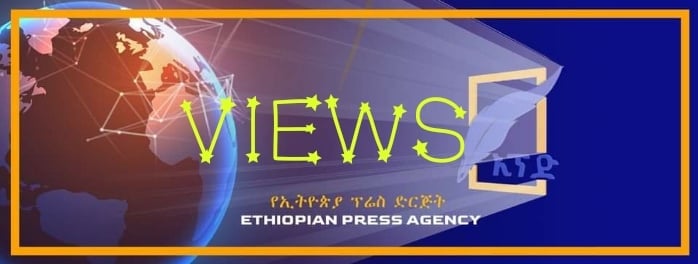
The United States which has been a superpower (a world police as US considers itself) for decades. The military capacity it has built and the economic supremacy it has been enjoying particularly after the end of the Second World War (WWII) enabled the US to impose their national interests in almost all corners of the world whenever they needed to.
The United States Dollar being the major international currency through which goods and services are exchanged, having major international institutions such as the IMF, World Bank, World Trade Organization even the UN being institutions that breathes through US’ lung, and its excellence in science and technology et al are among the prominent strongholds through which the US attains and retains its supreme position in the world.
The Holly Wood, on the other hand has been playing a significant role in shaping America’s image on the international arena in addition to Americanizing the world. The CIA along with the US embassies serve the interests of the US through various ways ranging from the provision of ‘conditioned’ aids up to conspiring for a regime change on sovereign nations.
In this aspect, I recall my International Law professor humorously saying that, “the only reason why we don’t see a violent regime change and/or revolution in US is because we don’t have a US embassy in America’. Well, there is no doubt about US’ multifaceted supremacy both in hard (political/military) and soft (economic/diplomatic) power. It is probably the rising superpowers such as Russia and China that makes the US think twice before saying and doing something. There is even a saying coined by the scholars of international politics in this regard which goes like, ‘when America sneezes, the world gets pneumonia’.
It is of course a universal political fact that any nation in the world to prioritize its national interest in its foreign relations. The difference is however in the execution of the policy since taking advantages from a foreign relation requires several factors such as military power, economic power, diplomatic skills, resource endowment, geostrategic location, religion, race, history, ideology, domestic peace and security, public opinion, personality and attitude of leaders (idiosyncratic values), time, occasions et al. These factors do change, so do relations in between and among nations. That’s why international politics scholars say ‘there is no permanent friend or enemy in international relations’. Such an ever changing arena then demands updated and skillful strategists to maneuver relations.
The United States for instance had supported and provided arms for Saddam Hussein throughout the Iran-Iraq conflict (1980 – 1988) despite Saddam’s oppression of the Iraqi people. Saddam Hussein who was then an ally to the US was denied by the US when he decided to invade Kuwait in 1990. The United States not only tuned its face on Saddam but also launched a full scale war in 1991 (Operation Desert Storm) under the banner of the United Nations against him along with imposition of sanctions which had a catastrophic effect of the people of Iraq. Saddam, who was once a friend, is now an enemy. This is how the international politics works: No permanent friend, No permanent enemy. It all comes down to the issue of national interest. Ethiopia who was also once an ally to the US in its fight against Al – Shabab has now been betrayed by the US.
Currently, using the conflict in Tigray, Northern Ethiopia as a pretext, the US is threatening the sovereignty of Ethiopia. The US senate has passed a resolution that imposes visa sanctions on those who are believed to take part in the conflict. It is even threatening to take further measures to weaken the Ethiopian economy. Is there a humanitarian crisis in Tigray? Yes, of course. Neither the people nor the government of Ethiopia denies the fact that the people of Tigray are paying severe price because of the war they (the people) didn’t start.
As an Ethiopian and as a man who is soon-to-married to a woman from the Tigrean origin, I feel deeply sorry to see what the people are going through. It is a sad reality of living in a war zone. We cry and woe for the people of Tigray. The TPLF, through its highly paid lobbyists and the Tigrean Diaspora (sons and daughters of the TPLF leaders) has managed to get the attention of the international bodies including the United States to put pressure on the Ethiopian government.
The United States replied to their call by demonizing the Ethiopian higher officials and proposed an immediate withdrawal of the Eritrean army and the Amhara militia from the Tigray region. The US echoed the issue through its influential media and gave it international attention. If we are to be honest enough, the US is never concerned about the humanitarian crisis over the region. If a humanitarian crisis truly causes the US to take measures, it would have intervened in the Israeli-Palestine conflict.
Joe Biden has said that Israel is using its right to defend itself without mentioning the humanitarian crisis over the region. What is then the fact that drove the US to intervene in the internal affairs of Ethiopia? As tried to mention above, it is simply the matter of national interest. The US intervention has two major objectives. First, it doesn’t like the way Ethiopia is handling the Great Ethiopian Renaissance Dam (GERD).
The US, while devising a geopolitical strategy in the North-Eastern Africa, Egypt is always in its mind. Egypt, located in one of the most geostrategic position of the world (mainly because of the Suez Canal and for the issue safeguarding the security of Israel), attracts the interest and political support of the superpowers, mainly the US. Egypt has left no stone unturned to interrupt the construction of the GERD (which is unfortunate for her that the dam is in its completion phase). Egypt believes that the GERD is her national threat. And she won’t stop trying to interrupt in any way possible.
The United States of America, the most powerful ally Egypt has ever got, has now got the gate opened for intervention – the humanitarian crisis over the Tigray region. In relation to this, the US is not comfortable with the fact that Ethiopia becoming a regional power in Eastern Africa. The US fears that the incumbent might be as obedient of their interest as his predecessors. A stronger Ethiopia is by no means a reality that Egypt and the US want to witness.
The second major objective I assume that the US intervention in the internal affairs of Ethiopia has is the stronger alliance of Ethiopian Prime Minister Abiy Ahmed and Eritrea’s President Esayas Afewerki. Esayas is among the prominent personality in the politics of Horn of Africa and he was and is designated by the US and its allies as a dictator and as a threat. Abiy Ahmed who is much younger and progressive than Esayas is on the other hand feared by the US that his brotherly alliance with Esayas would deny the US a boot on the Horn of Africa.
The US, as some experts say, fears that the strong bondage of the two East African leaders would create an unshakable Ethio-Eritrean state relation that would dominate the Eastern Africa. Esayas’s maturity in the Horn politics and Abiy’s progressive and agile reaction threatens the national interest of the US. Therefore, as those experts stress, the US is compelled to intervene and did found the Tigrean region humanitarian crisis a pretext. And the best way to halt the alliance of the two is by reinstalling TPLF to its former position at least over the Tigray region.
Well, it is neither a crime nor a sin for the US to act in such a way. As we have noted, it is the matter of securing one’s national interest. This is where international relation and law get complex. All diplomatic means need to be exploited on both sides to avert this political hiccup and restore their former cordial relations, otherwise both sides would lose regardless of who losses more.
BY WOSSENSEGED ASSEFA
The Ethiopian Herald June 9/2021




